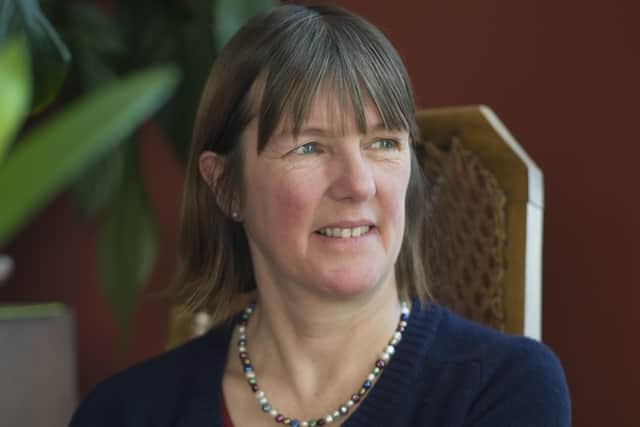Festival review: StAnza, various venues, St Andrews
StAnza International Poetry Festival, Various venues, St Andrews ****
The sense of living in difficult times ran through StAnza, Scotland’s International Poetry Festival, in St Andrews. Difficult times for the arts; difficult times for the world. Yet, there was also a sense of triumph that the festival has survived the tough pandemic years and, under new artistic director Ryan Van Winkle, begins a new chapter in its story.
Advertisement
Hide AdAlthough now concentrated in a weekend rather than stretched over five days, this year’s confident programme brought together poets of all kinds: Scottish, British and international, established and emerging, young and old, and was rewarded with busy, appreciative audiences.
A triumphant opening night, Warp and Weft, featured seven poets including Scots Makar Kathleen Jamie, Pádraig O Tuama, host of the podcast Poetry Unbound, and Jason Allen-Paisant, who recently scooped both poetry’s top prizes, the Forward and the TS Eliot, for his collection Self Portrait as Othello.
O Tuama set the tone for the weekend when he spoke of “menace and tenderness”, twin themes which would echo through the next two days. Allen-Paisant took them up when he gave the StAnza & Poetry Association of Scotland John Masefield Lecture on Saturday on “Poetry and the Sensorium of Catastrophe”.
He described how he took on a challenge to write a haiku a day for 100 days around the time of the Israeli invasion of Gaza, and found himself asking: “What does it mean to write poetry in the current moment? When the bodies of children are being pulled from rubble, what can art do?”
While admitting there are no easy answers, he argued that poetry is an act of tenderness which helps us survive, but it is more than that. When he began to weave the images from the news into his daily writing, he realised that poetry, with its in-built empathy, its capacity for memorialising, can sit powerfully alongside the violence.


The themes of violence and tenderness continued to interweave through the weekend. Leading Moroccan poet Soukaina Habiballah was twice refused a visa to travel to the festival, the decision overturned only at the 11th hour. Nigerian-British writer Yomi Sode shone a poetic light on everyday racism through his poems about the painter Caravaggio, echoing older wrongs of colonialism and enslavement.
Advertisement
Hide AdBut there was tenderness, too, in the considered discussion between three women poets of colour, Hannah Lavery, Clementine E Burnley and Jj Fadaka about their experiences of “intangible heritage” and in The World May Be the Same, a poetry performance by Lavery and Marjorie Lotfi of their letter-poems to one another exploring their experiences as women of colour in Scotland.
And there was time for joy as well. Michael Pedersen set out to write about grief in his memoir, Boyfriends, after the loss of his friend Frightened Rabbit frontman Scott Hutchison, but ended up writing about joy. He read with Liz Lochhead, who was in fine fettle, reading new and recent work and delighting the audience with her “Salsa Geriatrica”. She and 90-year-old Fleur Adcock, who read on Sunday night, between them clocked up many of the festival’s biggest laughs.
Advertisement
Hide AdPoetry can do that, put lightness next to darkness, spark empathy, tenderness and even laughter in difficult times. Top poets such as Saturday night’s headliners, Leontia Flynn and Daljit Nagra brought a light touch to complex subjects, from Brexit and Covid to the linguistic marks left by the British in India.
By the time the superb Anthony Joseph concluded the festival on Sunday night reading from TS Eliot Prize-winning book, Sonnets for Alfred, about his charismatic and largely absent father, StAnza had proved itself – as Nagra had predicted – “a celebration and an act of resistance”.